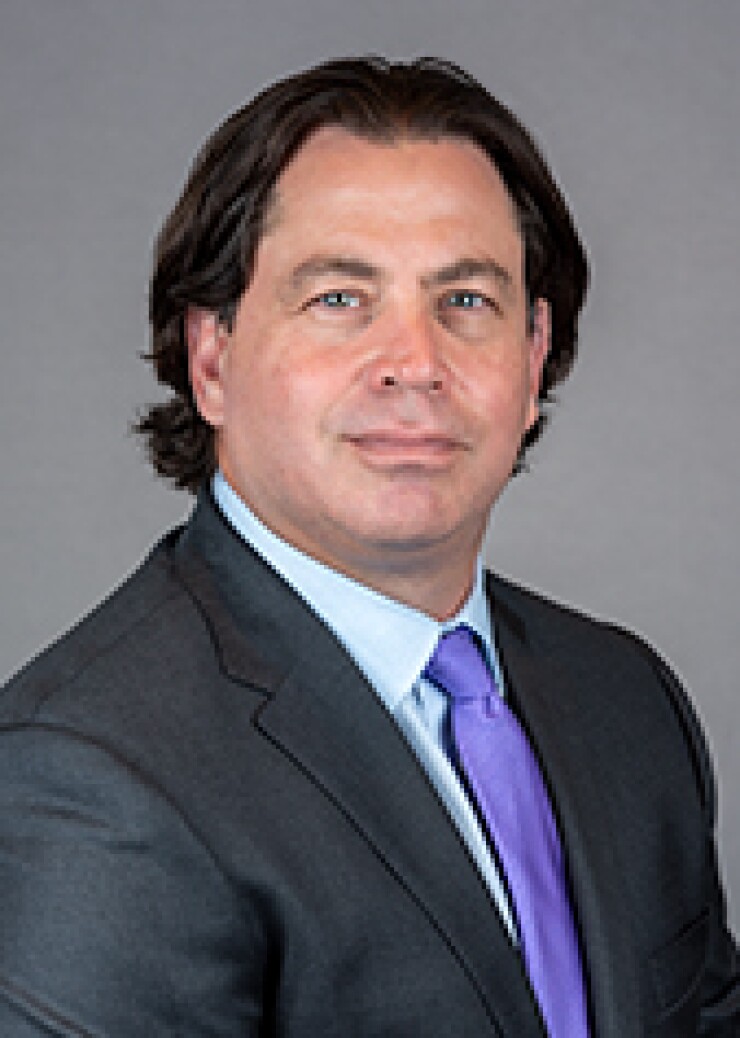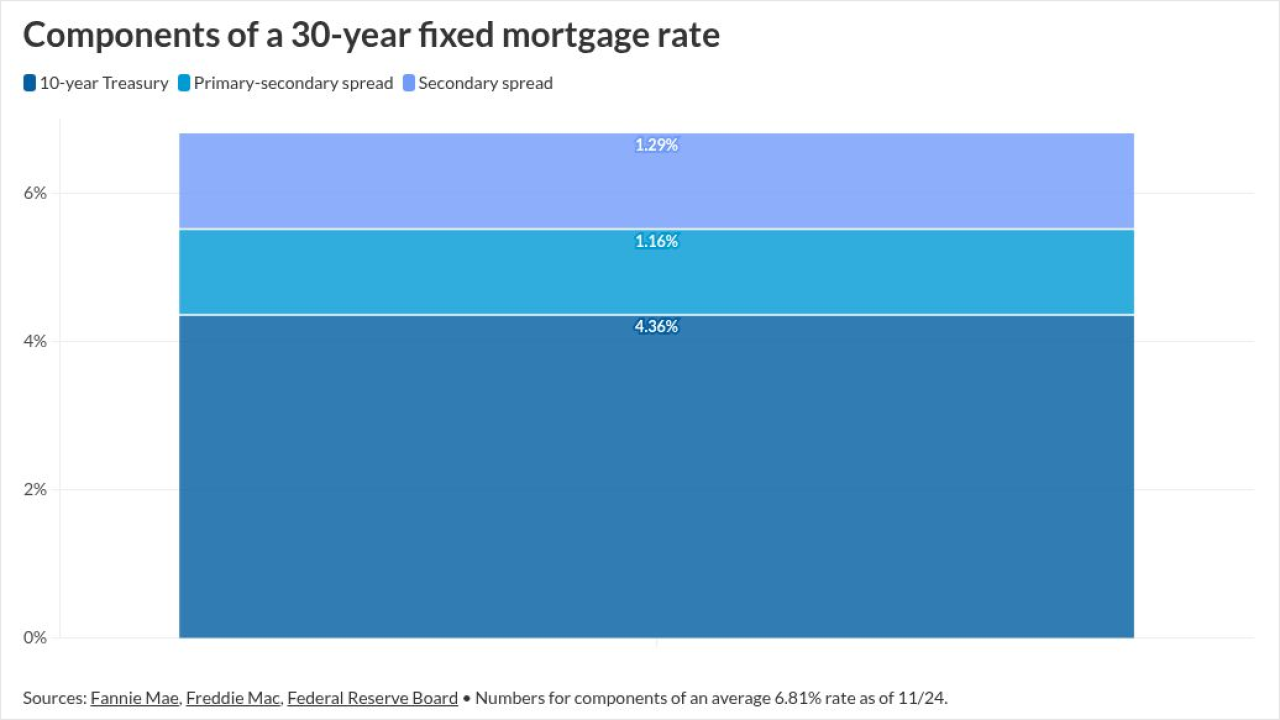One of the oldest law firms in the U.S. at more than 230 years old, Cadwalader, Wickersham & Taft (CWT) has regularly been a top legal counsel to underwriters and issuers in the securitization market since its inception. In fact, the firm just announced ranking in 2022 as a leading law firm providing advice across securitization asset classes, including asset-backed securities (ABS), commercial mortgage-backed securities (CMBS) and collateralized loan obligations (CLOs).
Moving into 2023, CWT's 150-strong team of securitization attorneys, across four offices worldwide, is cautiously optimistic. They maintain this position even as rising rates and widening spreads put pressure on the fixed-income market as 2022 drew to a close. In preparation, since last December it has brought several attorneys onboard and promoted two new partners with expertise in complex transactions including securitizations.
The co-chairs of CWT's capital market group, Michael Gambro and Stuart Goldstein, discussed key issues and trends, ranging from cross-border transactions to using distributed ledger technology (DLT) to complete deals, that they expect market professionals to face in 2023.

ASR: What has prompted CWT's recent hires and promotions?
Goldstein: It's where we see the market going: Increased consumer regulations and ESG regulations; working with the banks especially in Europe as Basel IV comes out; understanding that every transaction has the capacity to become a cross border transaction. Under the Biden Administration, there's much more emphasis on regulation. Some new hires may not work directly on securitization, but they provide important expertise globally. We just announced enhancing our leveraged finance and private credit capabilities by bringing over four partners from King & Spalding to our Charlotte office, and they'll work hand in glove with our ABS team, doing bridge work to whole-company ABS and other securitizations.
Gambro: Last year we completed the first European CRE CLO since the financial crisis. It was cross border between the E.U. and U.K., with multiple currencies, and importantly it was also offered in the U.S. Given the currently challenging market, deals need the broadest possible investor base and access to collateral when less is being originated.
ASR: What is the most pressing regulatory issue now?
Gambro: The SEC recently came out with a proposed rule stemming from the Dodd-Frank Act that prohibits transactions resulting in conflicts of interest for securitizations. Folks are parsing through it now to see what effect it could have as written. The concept makes sense, but the devil is in the details, and there are broad terms within the rule itself that could present problems for industry participants and their affiliates.
New capital pressures on banks are resulting in more capital relief trades, more synthetic transactions and credit-linked notes are popping up to access additional liquidity and get some capital relief. There's a fine line between doing a transaction that is viewed as a material conflict of interest by investors and a permitted hedging activity, especially when litigators often see conflicts with 20/20 hindsight.
ASR: The Libor transition deadline is June 30, and according to last fall's ARRC survey most legacy transactions have yet to transition. Do you anticipate challenges from a legal perspective?
Goldstein: The underlying loans and the securitizations themselves have to be papered with changes, and most of that is happening through the deal participants, according to the documents. On the CLO side, we're working with deal participants to amend the documents. There's work that needs to be done, but it's being worked through in an orderly way.
ASR: Regulators late last year denounced auto ABS deals using the term version of SOFR and said its excessive use, instead of daily SOFR rates, could undermine the new floating-rate benchmark. Do you anticipate more term SOFR deals outside what the ARRC has recommended?
Goldstein: We've got half a dozen or so auto ABS deals in progress now, and all are fixed-rate.
Gambro: As an aside, we're doing a lot of floating-rate CMBS with Freddie Mac based on daily compounded SOFR, and Freddie has recently moved away from the concept of switching to term SOFR. I don't think that affected demand for their floating-rate CMBS.
ASR: There were several initiatives a year and a half ago to apply DLT to securitizations, including mortgage-backed securities (MBS) and CLOs. What is CWT seeing on that front?
Gambro: We've been working on a DLT solution for an issue related to split loans in CMBS deals, where banks originate a large loan in a syndicate and then put their notes from the deal in separate securitizations. That's created issues in terms of deal participants not knowing where those pieces end up and servicer notifications [that DLT can resolve].
That said, it's been a slog to get banks and other participants to change their ways, and today when you mention blockchain people's antennas tend to go up, because of the problems associated with crypto. It's pretty clear, however, that the digitization of transactions will continue to progress, and part of that will involve DLT to provide information accuracy and transparency.
ASR: What about executing securitizations via DLT?
Goldstein: From time to time you hear of people trying to do tranches in crypto currencies, but issues such as the basis risk make that difficult. We've had some conversations around doing a digital token securitization, and the ones that make the most sense would securitize lease or license-usage payments from digitally created tokens—NFTs or something similar. The questions there are more around the cash flows than the technology.
Gambro: Before FTX, people were talking about doing ABS deals via DLT putting all ABS documentation on a blockchain and payments on the securities and underlying assets in crypto currency. Given the impact of the FTX mess on crypto currency, I don't see that happening in the future until there is more clarity relating to the possible regulation affecting crypto.





